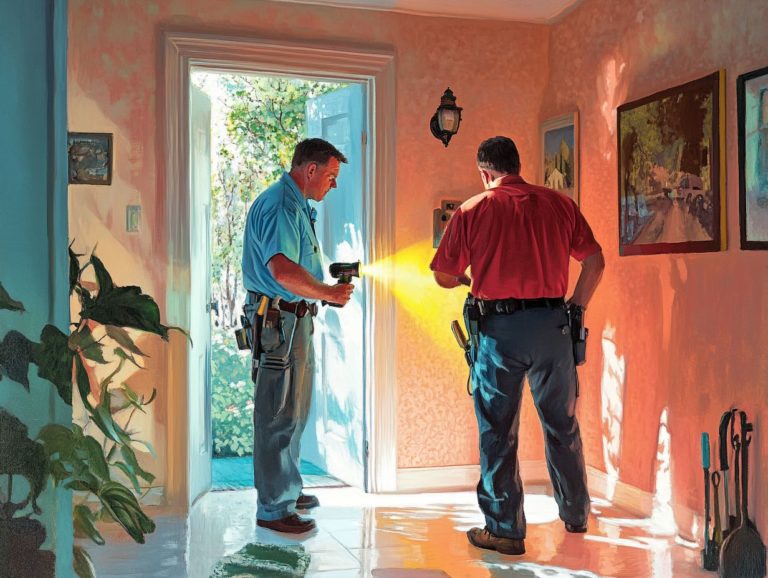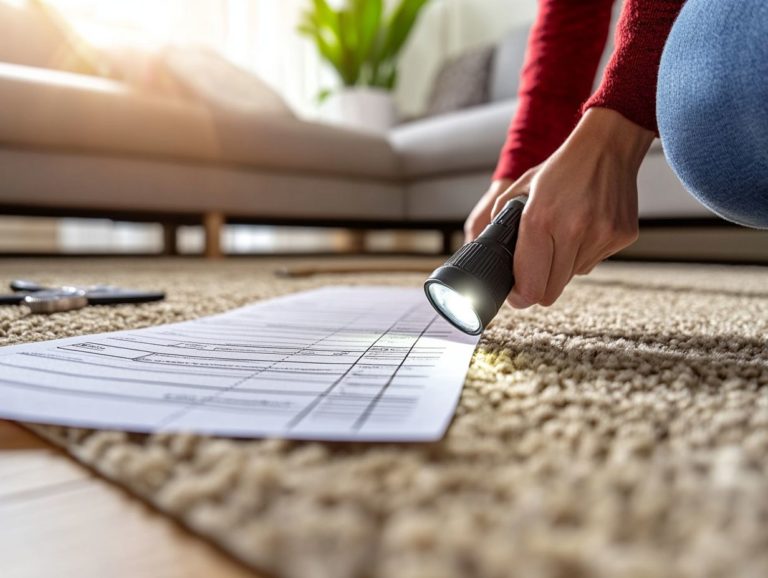The Role of a Home Inspector Explained
When purchasing a home, the excitement can easily overshadow the need for careful research.
One vital step that deserves your full attention is the home inspection. This process provides essential insights into the property’s condition and reveals potential issues that could greatly affect your decision.
This article will guide you through your home inspection journey, from understanding what home inspectors check to recognizing common problems they often find. You’ll learn how to choose the right inspector and what to expect during the examination, empowering you to make a smart investment for your future.
Contents
Key Takeaways:
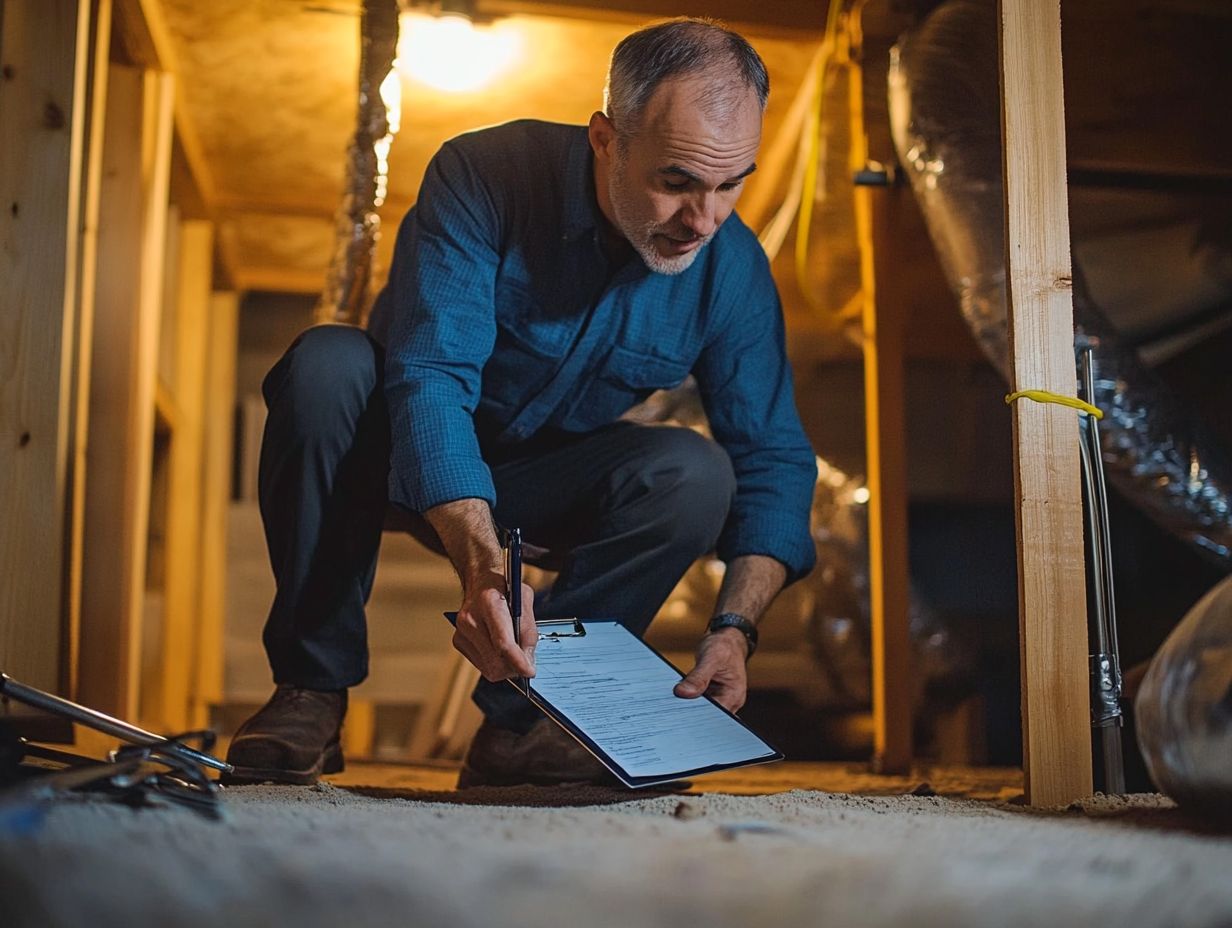
1. A professional home inspection is crucial for all homebuyers to ensure the safety and quality of the property.
2. Home inspectors examine all areas and components of a home, providing a detailed report on any potential issues, including understanding the role of agents in home inspections.
3. Problems related to the structure, electrical systems, and plumbing are among the most common issues found during inspections.
Don’t wait schedule your home inspection today to ensure your investment is secure!
The Importance of Home Inspections
Home inspections are essential in real estate transactions. They ensure that you, whether buying or selling, have a complete understanding of the property’s condition, safety risks, and any hidden issues that could affect its value. For more insights, check out the benefits of home inspections.
By hiring a qualified home inspector, you can make informed decisions as a buyer. Additionally, sellers can understand the necessity of home inspections to address concerns before listing their properties, enhancing marketability and reducing potential financial burdens.
Why Every Homebuyer Should Consider One
For every homebuyer, getting a home inspection is key to ensuring safety and avoiding unexpected financial surprises later on.
A thorough home inspection uncovers potential safety issues, such as faulty wiring or plumbing problems, giving buyers peace of mind in what is likely their largest investment.
Understanding the condition of the property allows you to make informed decisions that protect your finances and increase the property’s value.
Insights from a home inspection can help you negotiate a lower purchase price or prompt necessary repairs, leading to significant savings.
Prioritizing a home inspection is a smart move for any buyer eager to protect their investment.
What a Home Inspector Does
A home inspector plays a critical role in real estate by providing detailed evaluations through a careful inspection process, as outlined in understanding the role of home inspectors.
This includes assessing the structure of the house, ensuring it meets building codes, and producing a detailed report that benefits both buyers and sellers.
The Inspection Process
The inspection process involves a careful evaluation of the property, utilizing specialized tools to ensure thorough assessments and detailed documentation of the home’s condition, which is crucial for understanding the need for home inspections.
Inspectors begin by reviewing property documents and any previous inspection reports to understand potential problem areas.
During the inspection, they examine key components such as the roof, plumbing, and electrical systems, using infrared cameras, moisture meters, and other tools.
Every observation is carefully recorded to document findings and provide valuable insights for future maintenance.
After the inspection, a comprehensive report is generated, summarizing the property’s condition, highlighting areas needing attention, and making recommendations to assist in your decision-making process.
Areas and Components Covered
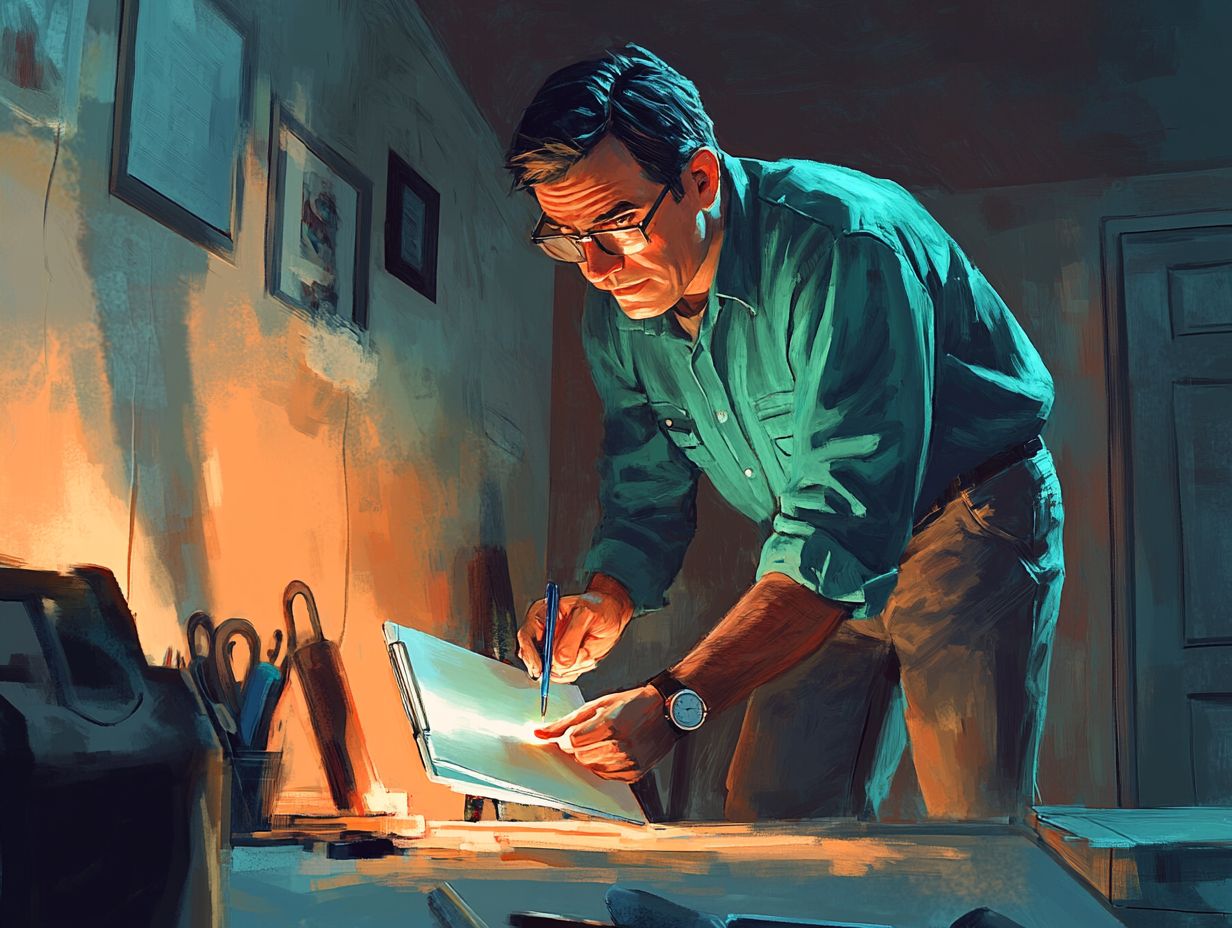
During a home inspection, you can expect key areas to be carefully checked, including plumbing systems, electrical systems, heating, ventilation, and air conditioning (HVAC) systems, and the overall structural integrity of the property.
Inspectors delve deep into the plumbing, checking for leaks and assessing water pressure while examining the condition of pipes. Issues in this area can lead to costly repairs and significant water damage.
Inspectors must also check electrical systems carefully, scrutinizing the wiring, circuit panels, and grounding to ensure that everything meets code and functions safely.
The HVAC systems receive attention as well, being examined for proper operation and maintenance to guarantee effective heating and cooling while promoting good air quality.
With a keen eye on the property’s overall structural integrity, inspectors search for foundational issues, assess roof conditions, and identify any signs of wear and tear. This thorough approach not only protects your investment but also ensures the safety of your family!
Common Issues Found in Home Inspections
Home inspections frequently uncover prevalent issues that can notably impact a property’s value and safety.
These may include structural concerns, electrical system faults, and plumbing problems that you, as a homeowner, should address proactively.
Structural, Electrical, and Plumbing Concerns
Structural, electrical, and plumbing concerns demand your attention during home inspections, as these hidden issues can pose significant safety risks and affect the overall integrity of the property.
You ll want inspectors to evaluate the foundation, framing, and other structural elements to ensure they can adequately support the home s weight and withstand external pressures.
Electrical systems should be scrutinized for outdated components or signs of wear since faulty wiring can lead to hazardous conditions, such as fires.
Plumbing issues deserve careful assessment; leaks or poor drainage can lead to extensive water damage, mold growth, and expensive repairs.
Each of these areas impacts not only the immediate safety of the occupants but also significantly influences the property s market value. This makes comprehensive inspections essential for making informed real estate decisions.
Benefits of a Professional Home Inspection
A professional home inspection offers substantial advantages, from significant financial savings achieved through early detection of potential issues to the invaluable peace of mind it provides for both buyers and sellers about the property’s true condition.
Financial and Peace of Mind Benefits
The financial advantages of a home inspection are considerable. By identifying hidden issues early, you can uncover potential savings while gaining peace of mind as you navigate your home purchase.
This essential step in the buying process enhances your financial planning, enabling you to make informed decisions that will influence your budget for years to come.
When you uncover underlying problems that might elude a casual walk-through, you position yourself to negotiate better prices and request necessary repairs. This proactive approach helps you secure a fair deal while supporting property values over time.
The confidence you gain from a comprehensive inspection allows you to budget for future maintenance costs more effectively, ensuring you’re prepared for what lies ahead.
In essence, home inspections do more than protect your investment; they pave the way for a smoother financial journey during and after your acquisition.
Choosing the Right Home Inspector
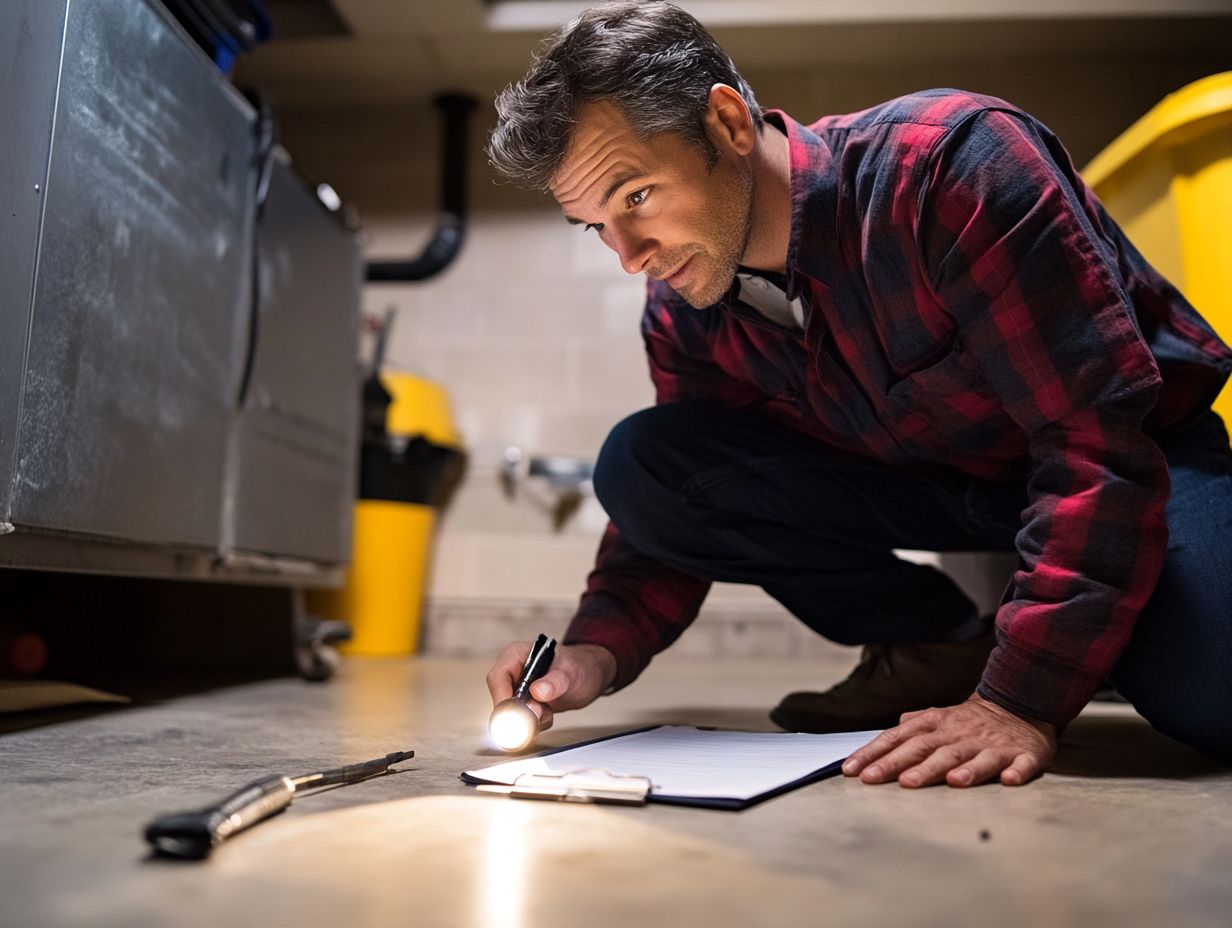
Choosing the right home inspector is crucial to protect your investment and ensure your safety. It requires a careful evaluation of their qualifications, credentials, and affiliations with reputable certification organizations and training programs.
This diligence ensures that you receive the highest standard of professional excellence in your inspection process.
Qualifications and Credentials to Look For
When choosing a home inspector, prioritize key qualifications and credentials. Look for memberships in reputable organizations such as the American Society of Home Inspectors and the International Association of Certified Home Inspectors.
These affiliations show a commitment to ongoing education and adherence to strict industry standards. It s crucial to verify that the inspector has completed recognized training programs covering all aspects of home evaluation, from structural integrity to electrical systems.
Many skilled inspectors hold certifications that reflect their expertise in specialized areas, further boosting their credibility. By seeking a home inspector with these qualifications, you can feel confident that thorough assessments will be conducted.
This careful approach protects you from unexpected problems and helps ensure your investment is sound.
What to Expect During a Home Inspection
During a home inspection, expect clear communication, meticulous evaluations, and comprehensive inspection reports. Understanding the process of home inspections ensures these elements are seamless, thanks to the inspector’s outstanding communication skills and exceptional organization in handling administrative tasks.
Communication and Reporting Process
Effective communication skills are vital during a home inspection. They allow you to convey findings and insights through a detailed inspection report that highlights critical issues and potential solutions.
When you articulate your observations clearly, you enable homeowners to make informed decisions about necessary repairs or maintenance. Thorough documentation is not just helpful; it’s essential. It serves as an important reference for understanding the property’s condition.
By taking detailed notes on each aspect of the home, you assist in problem-solving and enhance your report’s credibility, ensuring potential issues are thoroughly addressed.
This comprehensive approach fosters trust between you and the homeowner, reinforcing the importance of transparent communication throughout the inspection process.
Frequently Asked Questions
What is the role of a home inspector?
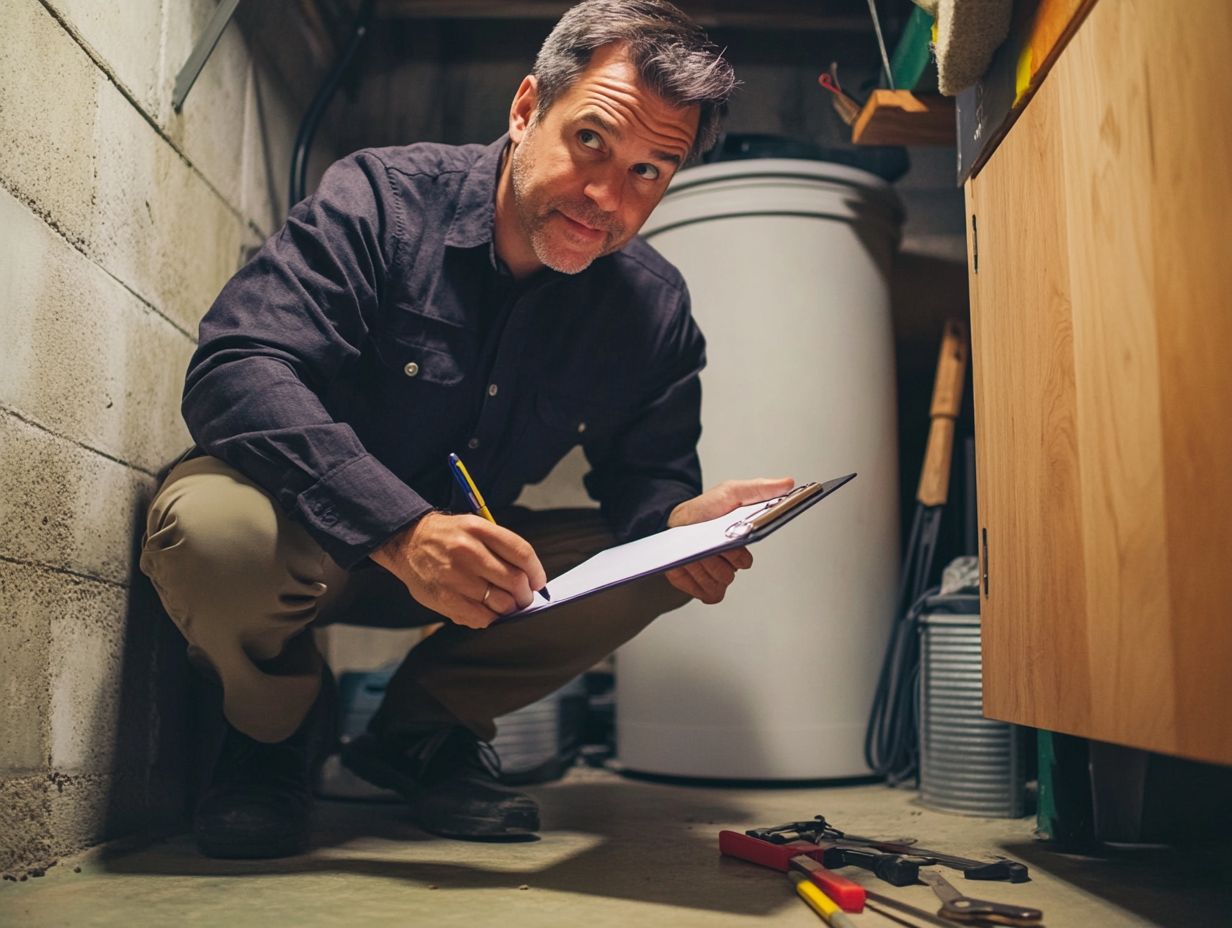
A home inspector examines a property to identify any potential issues or defects. They conduct thorough inspections of the home’s structure, systems, and components to ensure they meet safety and building code standards, making it vital to understand the home inspector’s role.
Why is it important to hire a home inspector?
Hiring a home inspector is important because they have the expertise to identify hidden or potential problems in a property. This can save you from purchasing a home with expensive or dangerous issues that you may not have noticed on your own.
What does a home inspector look for during an inspection?
A home inspector closely examines the structure, roof, plumbing, electrical, and heating, ventilation, and air conditioning (HVAC) systems of a property. They also check for signs of mold, pest infestations, and other hazards. Understanding the importance of home inspections means they will look for code violations or safety concerns.
What qualifications should a home inspector have?
A qualified home inspector should have formal training, experience, and certification from a reputable organization, such as the International Association of Certified Home Inspectors (InterNACHI). They should also thoroughly understand building codes and regulations.
What should I expect from a home inspection report?
A home inspection report should provide a detailed summary of the inspector’s findings, including any identified issues or concerns. For more insights, understanding the basics of home inspections is crucial, as it should include photos and recommendations for repairs or further inspections, if necessary.
How long does a home inspection usually take?
The duration of a home inspection can vary depending on the size, age, and condition of the property. However, a thorough inspection typically takes 2 to 4 hours to complete.
If you have more questions or need assistance, feel free to reach out to a qualified home inspector or visit a trusted resource for more information!




